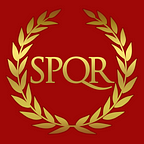Why Did the Messenger Die After the Marathon Run?
The story of the runner who brought news of victory from the Battle of Marathon to Athens was told by two famous ancient Greek historians — Herodotus and Plutarch. Herodotus was the first, born a few years after the battle, and had the opportunity to rely on eyewitness testimonies. According to Herodotus, the messenger Pheidippides was sent to Sparta a day before the battle to ask for reinforcements. He was chosen for his renowned speed in delivering the following message: “Lacedaemonians! The Athenians ask you to help them and prevent the enslavement of the oldest city in Hellas by barbarians. Eretria has already been enslaved, and Hellas has been diminished by one famous city.”
Herodotus writes nothing about Pheidippides’ fate after this. Plutarch, however, who lived half a millennium later, provides a colorful account. According to Plutarch, the messenger (whom Plutarch names as Eucles) covered 1240 stadia (a Greek stadium is 178 meters) daily, including mountainous terrains, to ask the Spartans for help. Not receiving the desired response, he returned with news that there would be no reinforcements, and thus, the battle must be won with the forces at hand. Afterward, Eucles participated in the 6-hour battle, which famously ended in a Greek victory. It was a great honor to bring the joyful news back to one’s city. Even exhausted and wounded, Eucles refused…
